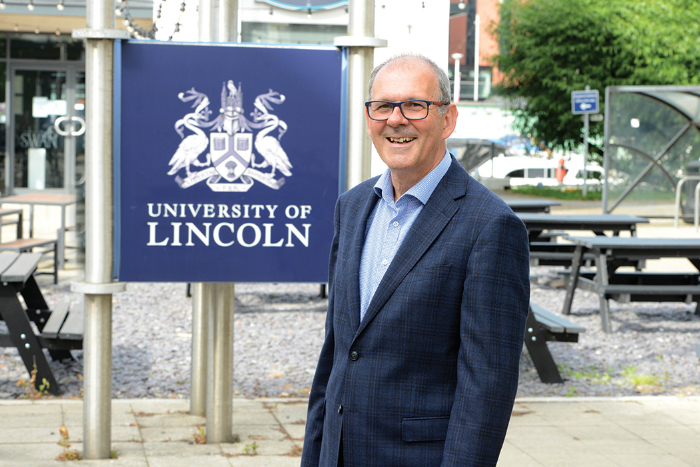
University head welcomes ‘value for money’ report
Professor Neal Juster has welcomed research that shows higher education is a sound investment.
The new research estimates that for every £1 of public money invested into UK universities around £14 of economic benefit is generated.
The London Economics report commissioned by Universities UK claims the positive economic impact of the UK higher education sector’s teaching, research and innovation activities was nearly £158 billion in 2021-22 and was around £265 billion once the economic benefit of international students was accounted for.
Prof Juster, Vice Chancellor of the University of Lincoln, said: “We welcome the UUK London Economics report that recognises our world leading higher education sector as a key engine for growth. From knowledge creation and education to economic development and social enrichment, the impact of universities is far-reaching and multifaceted, they are vital institutions that contribute to the betterment of society in many ways.
“If universities are to continue to contribute towards growth we need a stable future for higher education which includes a viable and fair funding system.
“There is intense scrutiny at the moment not just about the financial sustainability of our universities but about their value to society. The value of universities is not just in providing degree level education but in being our country’s innovation engines and key drivers of economic growth, prosperity and opportunity in all corners of the UK.
“Amid the greatest funding crisis higher education in this country has faced in generations, the government should recognise the vital role universities perform.
“Forty per cent of universities predict to be in deficit in 2023/24 because, right now, they are expected to provide their two main services — teaching and research – at a financial loss.
“Despite this the University of Lincoln has set a balanced budget for the new academic year 2024/25. This has required difficult decisions to reduce our expenditure while protecting our award-winning student experience and without any compulsory redundancies.
“Our focus now is on realising the bright future ahead for this university and the communities and businesses we serve. There is a huge amount of work still to be done to tackle regional inequalities and yet there are many reasons to be optimistic, whether it’s the first graduates from our Lincoln Medical School joining the local NHS workforce as junior doctors, our world-class agri-tech research leading innovations in the UK’s £110bn food industry, or our work supporting our region’s vibrant arts and cultural sector.
“We look forward to continuing this mission from a strong position and within a supportive policy environment that appreciates the power of education to transform lives and underpin growth both locally and nationally.”
